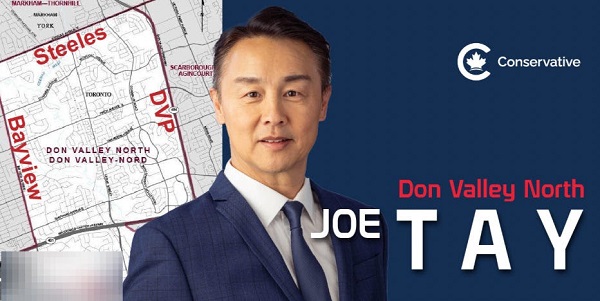Opinion
Words are not violence – Why Will Smith was wrong to strike Chris Rock.

This article submitted by Levi Kump
It is news to exactly no one, that Sunday night, Will Smith responded to a contentious, and arguably tasteless joke, by walking on stage at the Acadamy Awards and slapping the the offending party, one Chris Rock, across the face. Much has been made already about whether or not the incident was staged, though the ensuing furor has rendered that debate largely moot. Many people have chimed in on the issue, some saying the Smith was unequivocally wrong, and some, including no less than The National Post’s Barbara Kay, coming down on the the side of a face slap being fair play.
Let it be known, I believe Smith and Kay, are both wrong. First and foremost, because one of the tenets of civilization in general, is the old adage that, “ones right to get angry, stops at the next fellow’s nose”. Nothing new here. Setting aside for a moment that the slap was to the cheek/jaw area, I believe that notion still holds water. Genuine or not, this incident implies that there are some statements for which the only possible rebuttal, is the fist. The challenges with this way of thinking are legion, and until only a few years ago, seemed to have already been worked out in western society. Not the least of said problems is this: if words are violence itself, and answerable as such, then we no longer have any reason to use words. When one equates the verbal with the somatic, it is a very quick descent indeed, to using violence in any given situation. Why struggle for the ‘mot juste’, when one can move stright to a head kick?
Following this line of reasoning, we end up back, hundreds of years, to the time of, “might makes right”; which again, our civilization had once worked out, but now seems to be forgetting. One of the more common lines of reasoning for the “speech as violence” crowd, is that disparities in power give far more weight to some people’s words, than others. In the Smith/Rock debacle, this is hardly worth a mention, as both men are of the same demographic, read: multi-millionaires of the same skin tone. Though there are those who will point out, as did Barbera Kay, that the target of Rock’s joke, was not Will Smith himself, but rather his wife, Jada, who does in fact suffer from an auto immune disease, and whose hair loss is by no means her own fault. A powerful comedian making jokes about a/an (equally powerful?) woman’s physical condition should be off limits, or so goes the argument. The easy reply here is that there are
those, myself among them, who do not believe that anything should be off limits in speech.
Noting here that, not unlike our separation of words and action, society did away with the idea of ‘lese majest’ some time back. There are yet some who do not believe in this, and who think that the relative power of two parties (and exactly how do we quantify this?) matter to a verbal exchange. That the words of the more powerful party are in fact so weighty, that again, the only fair response, is a physical one. This begs the question, that if the words of the powerful are
unfairly weighted, how much more so are thier blows? It is to me, an untenable position. Slapping a man for speech only ends badly for everyone. Until very recently, we all seem to have understood this.
There was once a common convention, that words, for all their power, are clearly not violence. The fact that this is now somehow considered up for debate, does not bode well for society writ large. Any reasonable person will admit that words can be incredibly hurtful, damaging, and cruel. To deny this is foolish. Physical violence however, has all those dangers, along with a side order of split lips, contusions, and concussions. Indeed, whatever “damage” one suffers from words, one is still left with the ability to speak in rebuttal. A solid blow of any kind can not only dissuade retort, but neuter it completely. Perhaps this is what the proponents of violent response are after in the first place? If so, its disappointing. As I said, i thought we had worked this out.
Levi Kump is a former competitive international Muay Thai champion.
Business
Canada urgently needs a watchdog for government waste

This article supplied by Troy Media.
 By Ian Madsen
By Ian Madsen
From overstaffed departments to subsidy giveaways, Canadians are paying a high price for government excess
Canada’s federal spending is growing, deficits are mounting, and waste is going unchecked. As governments look for ways to control costs, some experts say Canada needs a dedicated agency to root out inefficiency—before it’s too late
Not all the Trump administration’s policies are dubious. One is very good, in theory at least: the Department of Government Efficiency. While that
term could be an oxymoron, like ‘political wisdom,’ if DOGE proves useful, a Canadian version might be, too.
DOGE aims to identify wasteful, duplicative, unnecessary or destructive government programs and replace outdated data systems. It also seeks to
lower overall costs and ensure mechanisms are in place to evaluate proposed programs for effectiveness and value for money. This can, and often does, involve eliminating departments and, eventually, thousands of jobs. Some new roles within DOGE may need to become permanent.
The goal in the U.S. is to reduce annual operating costs and ensure government spending grows more slowly than revenues. Washington’s spending has exploded in recent years. The U.S. federal deficit now exceeds six per cent of gross domestic product. According to the U.S. Treasury Department, the cost of servicing that debt is rising at an unsustainable rate.
Canada’s latest budget deficit of $61.9 billion in fiscal 2023-24 amounts to about two per cent of GDP—less alarming than our neighbour’s situation, but still significant. It adds to the federal debt of $1.236 trillion, about 41 per cent of our estimated $3 trillion GDP. Ottawa’s public accounts show expenses at 17.8 per cent of GDP, up from about 14 per cent just eight years ago. Interest on the growing debt accounted for 9.1 per cent of
revenues in the most recent fiscal year, up from five per cent just two years ago.
The Canadian Taxpayers Federation (CTF) consistently highlights dubious spending, outright waste and extravagant programs: “$30 billion in subsidies to multinational corporations like Honda, Volkswagen, Stellantis and Northvolt. Federal corporate subsidies totalled $11.2 billion in 2022 alone. Shutting down the federal government’s seven regional development agencies would save taxpayers an estimated $1.5 billion annually.”
The CTF also noted that Ottawa hired 108,000 additional staff over the past eight years, at an average annual cost of more than $125,000 each. Hiring based on population growth alone would have added just 35,500 staff, saving about $9 billion annually. The scale of waste is staggering. Canada Post, the CBC and Via Rail collectively lose more than $5 billion a year. For reference, $1 billion could buy Toyota RAV4s for over 25,600 families.
Ottawa also duplicates functions handled by provincial governments, often stepping into areas of constitutional provincial jurisdiction. Shifting federal programs in health, education, environment and welfare to the provinces could save many more billions annually. Poor infrastructure decisions have also cost Canadians dearly—most notably the $33.4 billion blown on what should have been a relatively simple expansion of the Trans Mountain pipeline. Better project management and staffing could have prevented that disaster. Federal IT systems are another money pit, as shown by the $4-billion Phoenix payroll debacle. Then there’s the Green Slush Fund, which misallocated nearly $900 million.
Even more worrying, the rapidly expanding Old Age Supplement and Guaranteed Income Security programs are unfunded, unlike the Canada Pension Plan. Their combined cost is already roughly equal to the federal deficit and could soon become unmanageable.
Canada is sleepwalking toward financial ruin. A Canadian version of DOGE—Canada Accountability, Efficiency and Transparency Team, or CAETT—is urgently needed. The Office of the Auditor General does an admirable job identifying waste and poor performance, but it’s not proactive and lacks enforcement powers. At present, there is no mechanism in place to evaluate or eliminate ineffective programs. CAETT could fill that gap and help secure a prosperous future for Canadians.
Ian Madsen is a senior policy analyst at the Frontier Centre for Public Policy.
The views, opinions, and positions expressed by our columnists and contributors are solely their own and do not necessarily reflect those of our publication.
© Troy Media
Troy Media empowers Canadian community news outlets by providing independent, insightful analysis and commentary. Our mission is to support local media in helping Canadians stay informed and engaged by delivering reliable content that strengthens community connections and deepens understanding across the country.
Agriculture
Liberal win puts Canada’s farmers and food supply at risk

This article supplied by Troy Media.
A fourth Liberal term means higher carbon taxes and trade risks. Could Canada’s farmers and food security be on the line?
The Liberal Party, now led by Mark Carney, has secured a fourth consecutive term, albeit once again with a minority mandate. This time, however, the Liberals have a stronger hand, as they can rely not only on the NDP but also the Bloc Québécois to maintain power.
This broader base of parliamentary support could provide much-needed political stability at a crucial time, particularly as Canada prepares for a new round of trade negotiations with the United States and Mexico.
For the agri-food sector, the implications are significant. From carbon taxes to trade rules, federal decisions play a decisive role in shaping the costs and risks Canadian farmers face.
First and foremost, carbon pricing will remain a central issue. Carney has made it clear that the industrial carbon tax will stay—a policy that continues to erode the competitiveness of Canada’s agri-food sector, where fuel, fertilizer and transportation costs are especially sensitive to carbon pricing. The tax, currently set at $95 per metric tonne, is scheduled to climb to $170 by 2030.
While consumers may not see this tax directly, businesses certainly do. More concerning is the Liberals’ intention to introduce a border carbon adjustment for imports from countries without equivalent carbon pricing regimes. While this could theoretically protect Canadian industry, it also risks making food even more expensive for Canadian consumers, particularly if the U.S., our largest trading partner, remains uninterested in adopting similar carbon measures. Acting alone risks undermining both our food security and our global competitiveness.
Another looming issue is supply management. Although all parties pledged during the campaign not to alter Canada’s system for dairy, poultry and eggs, this framework—built on quotas and high import tariffs—is increasingly outdated. It is almost certain to come under pressure during trade negotiations. The American dairy lobby, in particular, will continue to demand greater access to Canadian markets. The Liberals have a chance to chart a more forward-looking path. Modernizing supply management could lead to a more competitive, resilient industry while providing consumers with greater choice and better prices.
The previous Parliament’s passage of Bill C-282, which sought to shield supply managed sectors from all future trade negotiations, was a deeply flawed move.
Fortunately, the new parliamentary makeup should make it far less likely that such protectionist legislation will survive. A more pragmatic approach to trade policy appears possible.
On the domestic front, there are reasons for cautious optimism. The Liberals have promised to eliminate remaining federal barriers to interprovincial trade and to improve labour mobility, longstanding obstacles to the efficient movement of agri-food products across Canada. For example, differing provincial rules often prevent products like cheese, meat or wine from being sold freely across provinces, frustrating farmers and limiting consumer choice. Momentum was building before the election, and it must continue if we are serious about building a stronger domestic food economy.
Infrastructure investment is another bright spot. The Liberals pledged more than $5 billion through a Trade Diversification Corridor Fund to upgrade Canada’s severely undercapitalized export infrastructure. Strategic investment in trade gateways is overdue and critical for agri-food exporters looking to reduce reliance on the United States and expand into global markets.
Finally, the Liberal platform was alone in explicitly committing to support food processing in Canada, a crucial pillar of domestic food security. An increased focus on manufacturing will not only create jobs but also reduce reliance on imported food products, making Canada more resilient in the face of global disruptions.
Farmers have long felt sidelined by urban-centric Liberal governments. The past four years were marked by regulatory and trade clashes that deepened that divide. The hope now is that with greater political stability and a clearer focus on competitiveness, the next four years will bring a more constructive relationship between Ottawa and Canada’s agri-food sector.
If the Liberals are serious about food security and economic growth, now is the time to reset the relationship with Canada’s farmers, not ignore them yet again.
Dr. Sylvain Charlebois is a Canadian professor and researcher in food distribution and policy. He is senior director of the Agri-Food Analytics Lab at Dalhousie University and co-host of The Food Professor Podcast. He is frequently cited in the media for his insights on food prices, agricultural trends, and the global food supply chain.
Troy Media empowers Canadian community news outlets by providing independent, insightful analysis and commentary. Our mission is to support local media in helping Canadians stay informed and engaged by delivering reliable content that strengthens community connections and deepens understanding across the country.
-
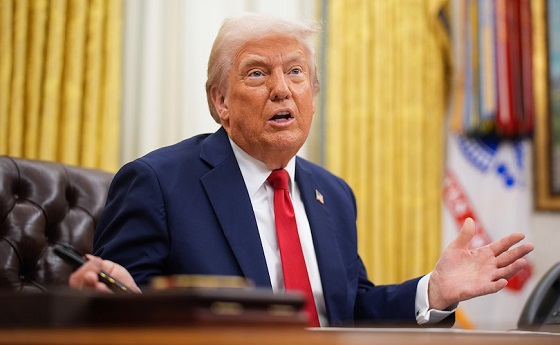
 Business1 day ago
Business1 day agoTrump’s bizarre 51st state comments and implied support for Carney were simply a ploy to blow up trilateral trade pact
-

 Business1 day ago
Business1 day agoNew federal government plans to run larger deficits and borrow more money than predecessor’s plan
-
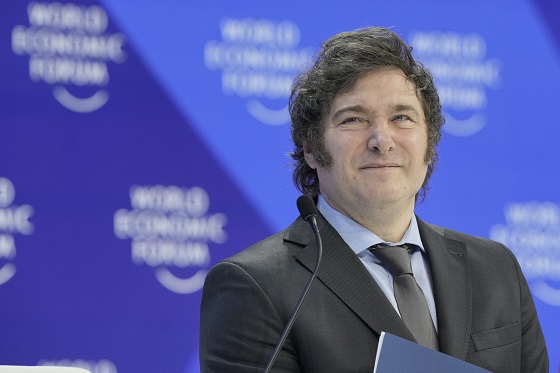
 International1 day ago
International1 day agoJavier Millei declassifies 1850+ files on Nazi leaders in Argentina
-

 espionage2 days ago
espionage2 days agoLongtime Liberal MP Warns of Existential Threat to Canada, Suggests Trump’s ’51st State’ Jibes Boosted Carney
-
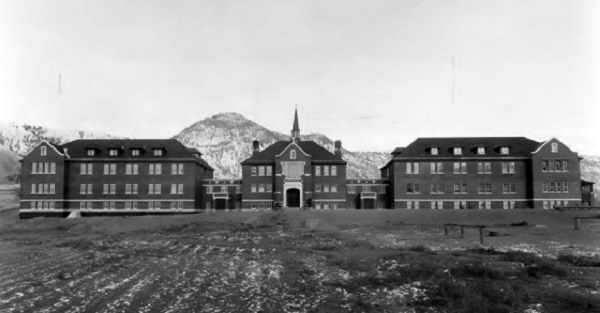
 Frontier Centre for Public Policy1 day ago
Frontier Centre for Public Policy1 day agoTrust but verify: Why COVID-19 And Kamloops Claims Demand Scientific Scrutiny
-
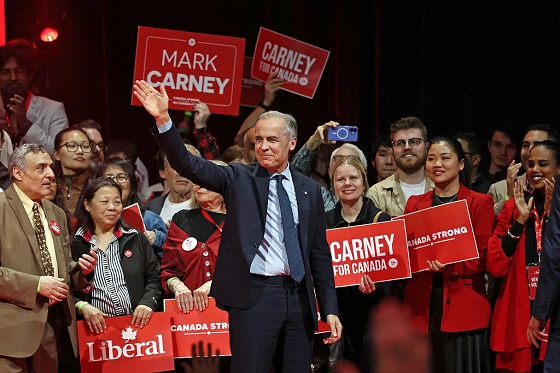
 Alberta16 hours ago
Alberta16 hours agoAlberta’s future in Canada depends on Carney’s greatest fear: Trump or Climate Change
-
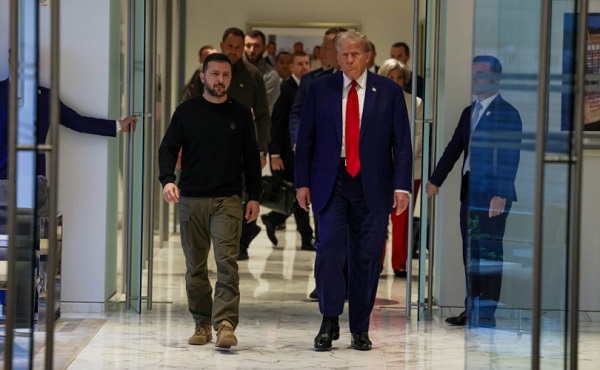
 Business1 day ago
Business1 day agoScott Bessent says U.S., Ukraine “ready to sign” rare earths deal
-
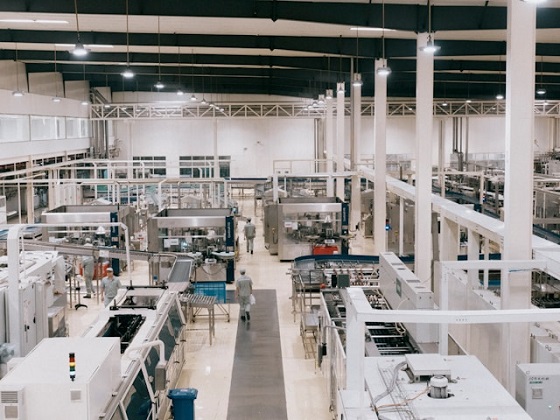
 Business1 day ago
Business1 day agoChina’s economy takes a hit as factories experience sharp decline in orders following Trump tariffs
